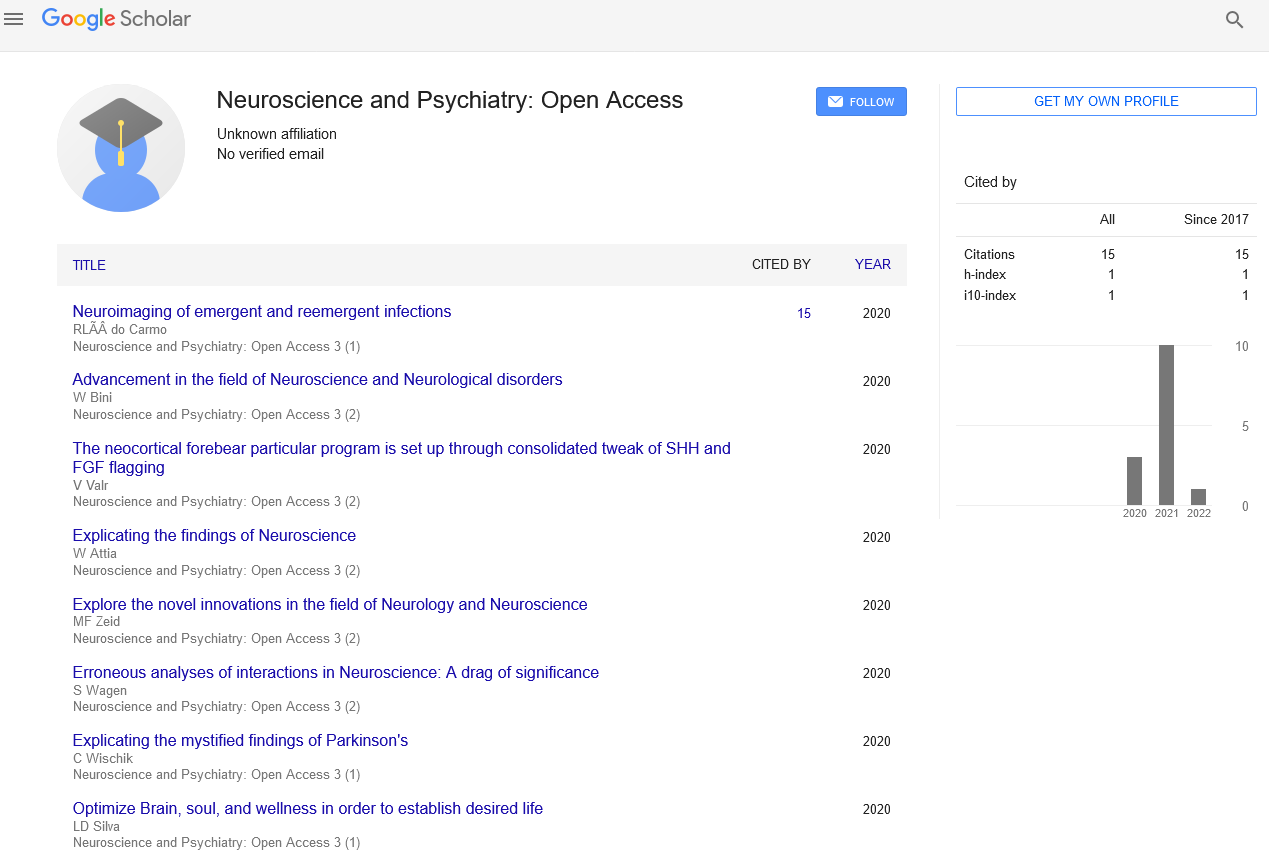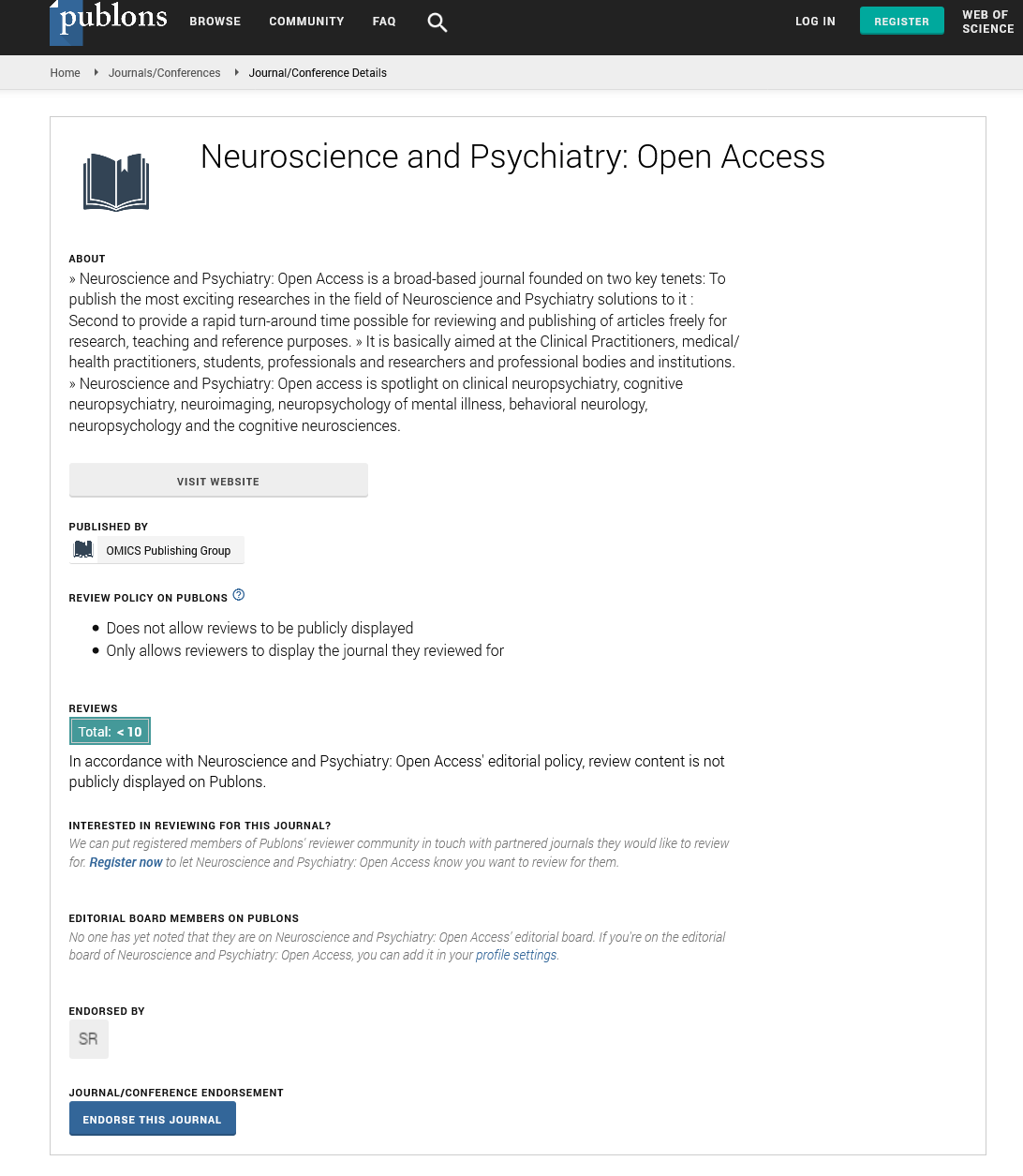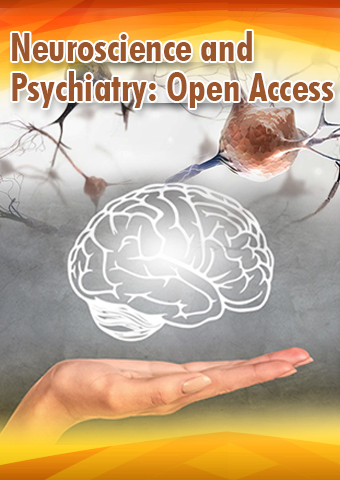Perspective - Neuroscience and Psychiatry: Open Access (2024) Volume 7, Issue 2
Navigating the Complexities of Addiction Psychiatry: Understanding, Treating, and Healing
- Corresponding Author:
- Charles Schleifer
Department of Psychiatry, University of Pennsylvania, Pennsylvania, USA
E-mail: Cschlei567@mednet.udla.edu
Received: 16-02-2024, Manuscript No. NPOA-24-128840; Editor assigned: 19-02-2024, PreQC No. NPOA-24-128840 (PQ); Reviewed: 04-03-2024, QC No. NPOA-24-128840; Revised: 14-03-2024, Manuscript No. NPOA-24-128840 (R); Published: 21-03-2024, DOI: 10.47532/npoa.2024.7(2).185-187
Introduction
Addiction psychiatry stands at the intersection of mental health and substance use disorders, addressing the intricate interplay between neurobiology, psychology, and social factors in the development and management of addiction. As a subspecialty of psychiatry, addiction psychiatry encompasses the assessment, diagnosis, and treatment of individuals struggling with Substance Use Disorders (SUDs) and co-occurring mental health conditions. In this article, we delve into the multifaceted nature of addiction psychiatry, exploring its foundational principles, evidence-based interventions, and the evolving landscape of addiction treatment.
Description
Foundational principles of addiction psychiatry
Addiction psychiatry is grounded in a biopsychosocial model that recognizes the complex interplay of biological, psychological, and social factors underlying substance use and addiction. Key principles include:
• Neurobiology of addiction: Addiction is characterized by dysregulation of brain circuits involved in reward, motivation, and decision-making. Neurotransmitters such as dopamine, serotonin, and glutamate play critical roles in mediating the reinforcing effects of drugs and the development of addiction. Neuroadaptive changes in brain structure and function contribute to the compulsive drug-seeking behavior and loss of control observed in individuals with SUDs.
• Psychosocial contributors: Psychosocial factors, including genetics, early life experiences, trauma, stress, and social environment, influence susceptibility to addiction and shape the course of the disorder. Co-occurring mental health conditions, such as depression, anxiety, and Post-Traumatic Stress Disorder (PTSD), are common among individuals with SUDs and may exacerbate substance use and complicate treatment.
• Stages of change: The transtheoretical model of change posits that individual’s progress through distinct stages of change precontemplation, contemplation, preparation, action, and maintenance in their journey towards recovery from addiction. Understanding where individuals are in the change process informs treatment planning and interventions tailored to their stage of readiness to change.
• Harm reduction: Harm reduction approaches aim to minimize the negative consequences associated with substance use, even if abstinence is not immediately achievable. Harm reduction strategies include needle exchange programs, opioid substitution therapy, overdose prevention education, and safer drug use practices. By meeting individuals where they are and addressing their immediate needs, harm reduction approaches promote engagement in treatment and reduce the risk of adverse outcomes.
Evidence based interventions in addiction psychiatry
Treatment of SUDs typically involves a multimodal approach that integrates pharmacotherapy, psychotherapy, behavioral interventions, and psychosocial support. Evidence-based interventions include:
• Medication Assisted Treatment (MAT): MAT combines pharmacotherapy with counseling and behavioral therapies to address both the physiological and psychological aspects of addiction. Medications such as methadone, buprenorphine, and naltrexone are used to manage opioid dependence, while medications like acamprosate, disulfiram, and naltrexone are utilized for alcohol use disorder. MAT reduces cravings, withdrawal symptoms, and the reinforcing effects of drugs, facilitating recovery and reducing the risk of relapse.
• Cognitive Behavioral Therapy (CBT): CBT is a widely used psychotherapeutic approach that helps individuals identify and modify maladaptive thoughts, beliefs, and behaviors associated with substance use. CBT targets cognitive distortions, enhances coping skills, and promotes healthier decisionmaking and problem solving strategies. By addressing underlying psychological triggers and teaching adaptive coping mechanisms, CBT empowers individuals to manage cravings, avoid relapse, and achieve sustainable recovery.
• Motivational Interviewing (MI): MI is a client centered counseling approach that seeks to enhance motivation and resolve ambivalence about change. Through empathic listening, reflective questioning, and collaborative goal setting, MI helps individuals explore their motivations for change, identify personal values and goals, and develop intrinsic motivation for recovery. MI is particularly effective in engaging individuals in treatment, increasing readiness to change, and fostering a therapeutic alliance between clinicians and clients.
• Contingency Management (CM): CM is a behavioral intervention that uses positive reinforcement to promote abstinence and adherence to treatment goals. In CM programs, individuals receive tangible rewards, such as vouchers or prizes, for meeting predetermined behavioral targets, such as submitting drug free urine samples or attending therapy sessions. By providing immediate rewards for desired behaviors, CM reinforces positive changes and incentivizes engagement in treatment.
The evolving landscape of addiction treatment
Advances in addiction psychiatry have led to the development of innovative approaches to addiction treatment and recovery. Key trends include:
• Integrated care models: Integrated care models aim to address the complex needs of individuals with co-occurring SUDs and mental health conditions by integrating addiction treatment with primary care, mental health services, and social support. Integrated care teams collaborate across disciplines to provide comprehensive, holistic care that addresses substance use and mental health needs, improving outcomes and reducing barriers to treatment access.
• Telehealth and digital therapeutics: Telehealth platforms and digital therapeutics offer remote access to addiction treatment and support services, overcoming geographic barriers and expanding the reach of addiction care. Telehealth interventions may include virtual counseling sessions, web-based support groups, and mobile apps for self-monitoring and relapse prevention, and telepsychiatry consultations. Digital technologies enhance engagement, convenience, and flexibility in addiction treatment delivery, catering to the diverse needs and preferences of individuals seeking help for substance use.
• Peer support and mutual aid: Peer support programs, such as Alcoholics Anonymous (AA) and Narcotics Anonymous (NA), play a vital role in addiction recovery by providing mutual aid, peer mentoring, and social support to individuals in recovery. Peer support groups offer a safe, nonjudgmental environment where individuals can share their experiences, learn from others, and receive encouragement and validation from peers who understand their struggles. Peerled initiatives, such as recovery community centers and peer recovery coaching programs, complement professional treatment services and promote sustained recovery and community integration.
• Trauma informed care: Trauma informed care recognizes the pervasive impact of trauma on individuals with SUDs and emphasizes safety, trustworthiness, collaboration, and empowerment in treatment settings. Trauma-informed approaches integrate trauma screening, trauma sensitive assessment, and trauma-focused interventions into addiction treatment, addressing the underlying trauma related triggers and vulnerabilities that contribute to substance use and addiction. By creating a supportive and validating environment, trauma-informed care promotes healing, resilience, and recovery for individuals with complex trauma histories.
Conclusion
Addiction psychiatry plays a critical role in addressing the complex and multifaceted nature of substance use disorders, offering hope and healing to individuals and families affected by addiction. By integrating biological, psychological, and social perspectives, addiction psychiatry provides a comprehensive framework for understanding addiction and guiding evidence-based interventions that promote recovery and well-being. As the field continues to evolve, innovative approaches to addiction treatment, advances in digital health technologies, and a growing emphasis on trauma-informed care hold promise for improving outcomes and transforming the lives of individuals struggling with addiction. With compassion, empathy, and a commitment to evidence based practice, addiction psychiatry continues to pave the way towards a future where recovery from addiction is achievable for all.


